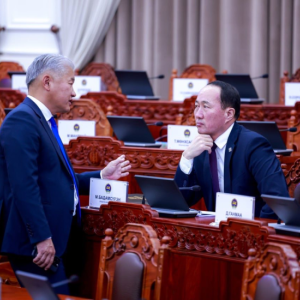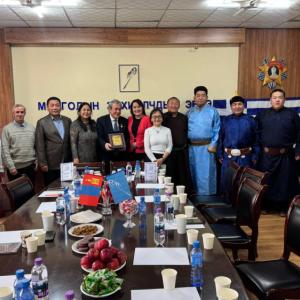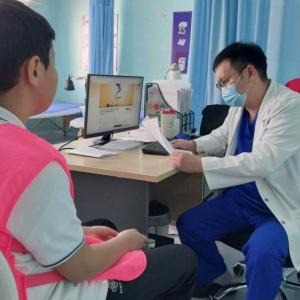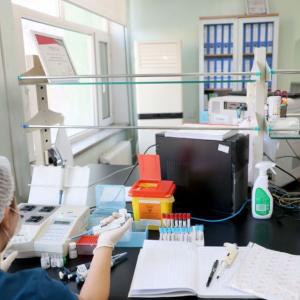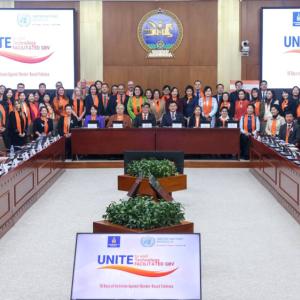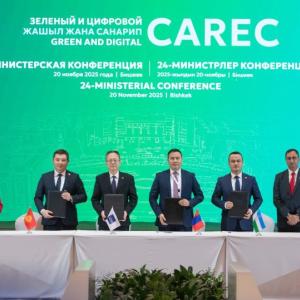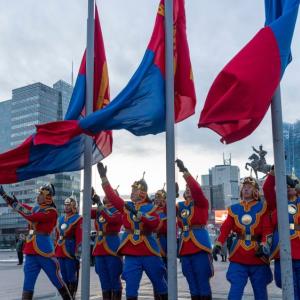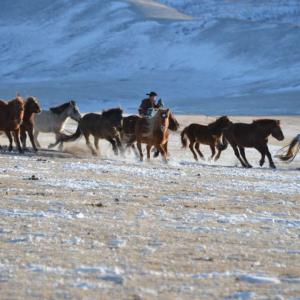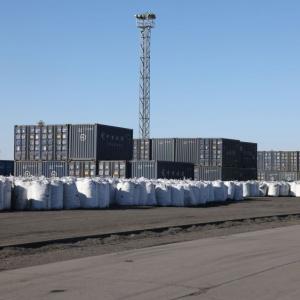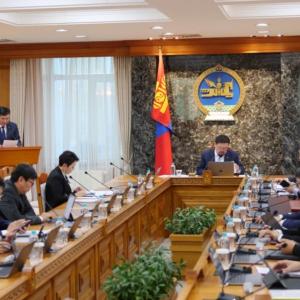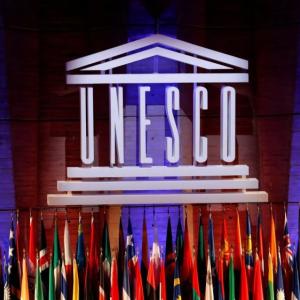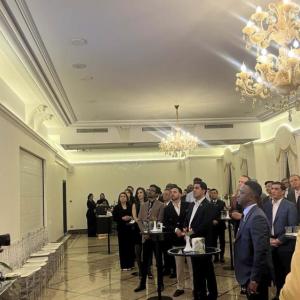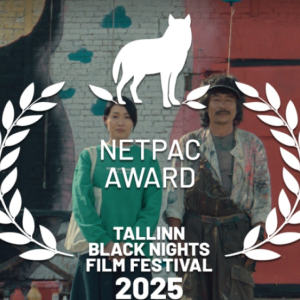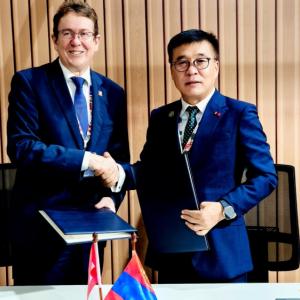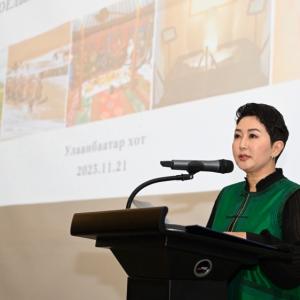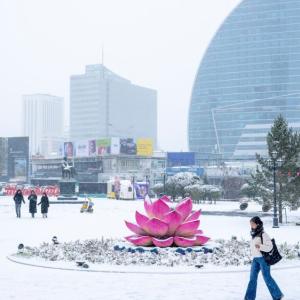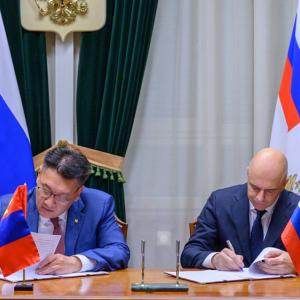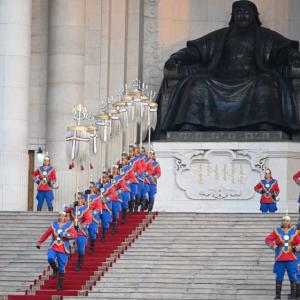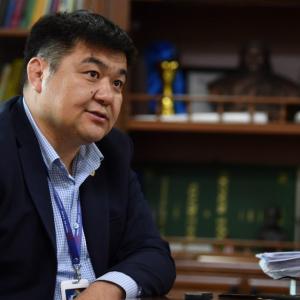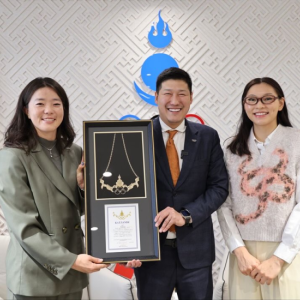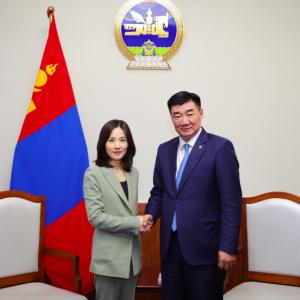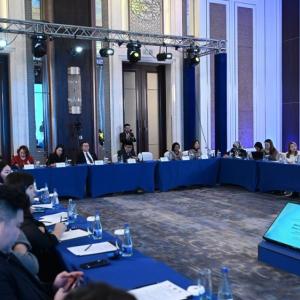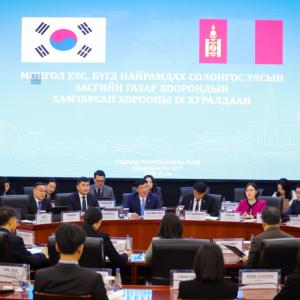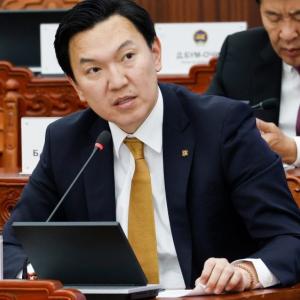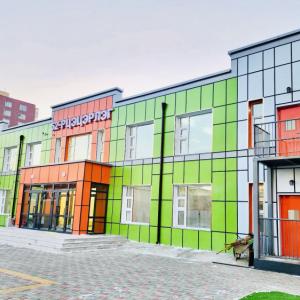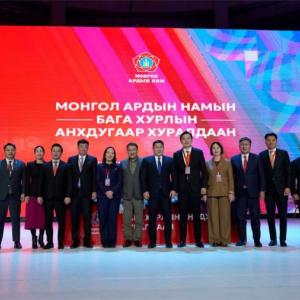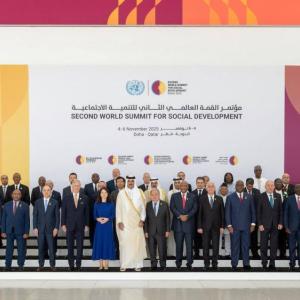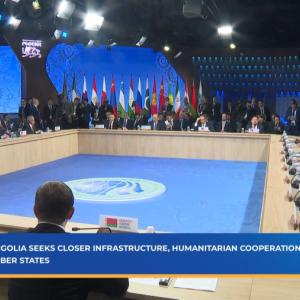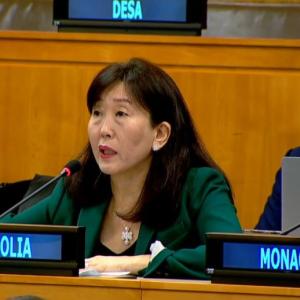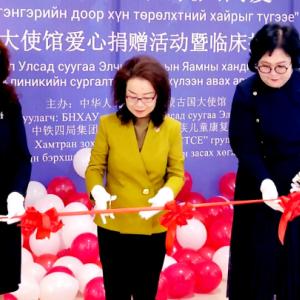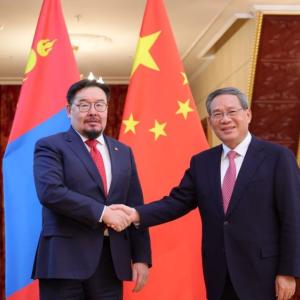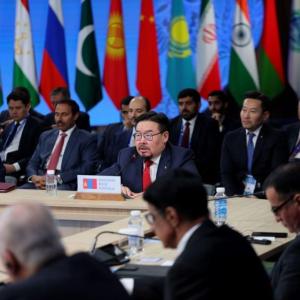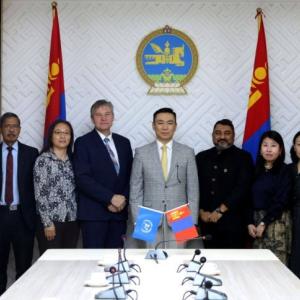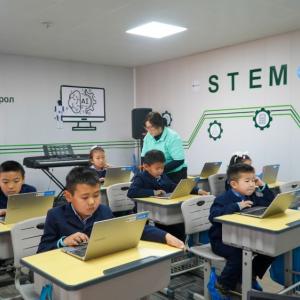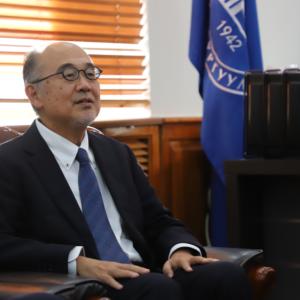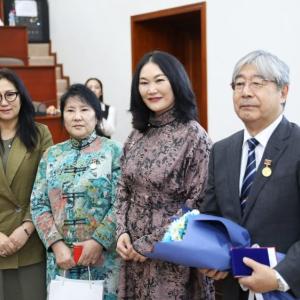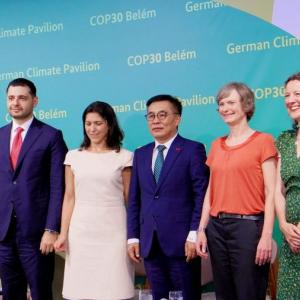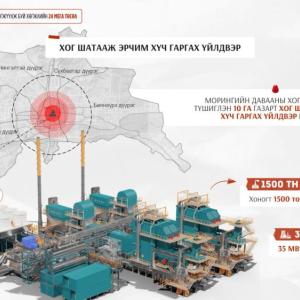National Workshop: Empowering Media Officials for Reporting on Emergencies and DRR
Society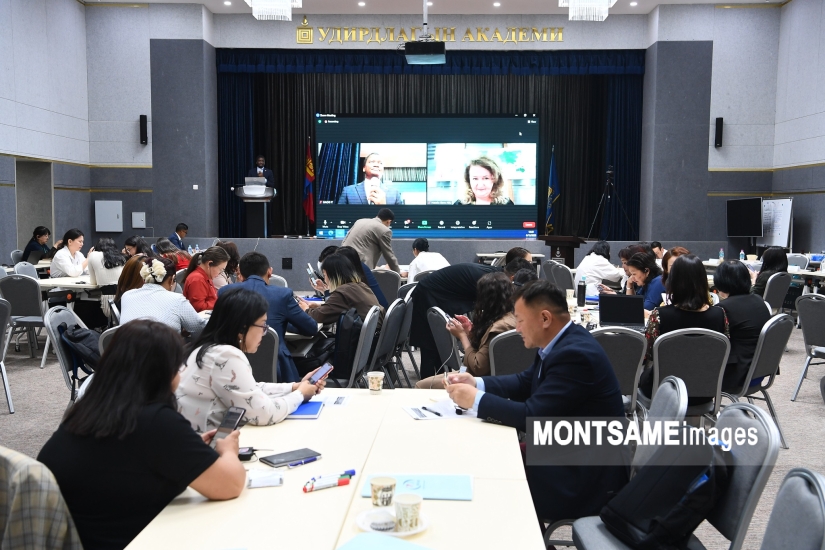
Ulaanbaatar, June 13, /MONTSAME/. The National Workshop on Effective Governance for Sustainable Development in Mongolia was concluded on June 13 with National Workshop for Media Officials on Risk-informed Communication for Reporting on Emergencies and Disaster Risk Reduction.
Studies, conducted by professional organizations show that
Mongolia will experience an annual increase in the risk of drought, flood,
earthquake, fire, and infectious illnesses. Therefore, the media workshop aimed
to strengthen media
officials' and journalists’
knowledge of emergency and disaster information and publicity, including running information-based campaigns to raise awareness of the
emergency situation and to lower the risk of disasters.
The workshop organized by the National Academy of Governance and
MONTSAME Mongolian National News Agency in
collaboration with the United Nations
Project
Office on Governance (UNPOG) of the Department of Economic and Social Affairs (UN DESA) was attended by
about 80 media officials from the government institutions which include
spokespersons, journalists, communication officers, and reporters.
Director General of MONTSAME
Mongolian National News
Agency E. Sodontogos made
a presentation on “The history and lessons of Mongolian media and disaster situation information”
where she highlighted “ It is no secret that Mongolia's advantageous location, where
disasters do not occur frequently, has caused our media to be less active and
limited to reporting on actual events and disaster warnings.”
According to her presentation, Mongolia experienced significant zuds
(a
severe periodical disaster) in 1944,
1956, and 1968. In 1944, zud lasted
150 days and killed 9.2 million animals. In 1956, zud killed 2.2 million animals. In 1968, zud lasted 165 days and killed 4 million animals. Since
1957, there haven't been any earthquake-related catastrophes that directly
harmed the populace, society, or economy. It is influenced by the large area
and sparse population. Earthquakes that cause significant damage often occur in
rural areas and uninhabited areas, which reduces the risk of disasters.
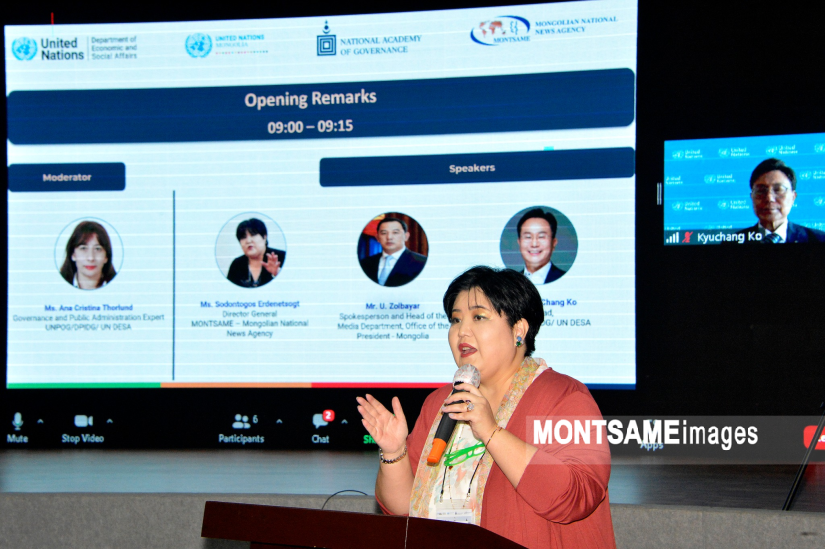
“The risk of drought
in summer often goes unnoticed by the public. Therefore, it may be a topic that
is only briefly mentioned by the media when it comes to climate change and
desertification. Even the risk of flood and wildfire is short-lived and is only reported by the media at that
particular time.”
“The global
coronavirus epidemic was the most recent significant calamity humanity faced. Many events took place in 2020-2021 when the principles of
work of media organizations and government agencies regulating the development
of events conflicted, and in some ways, media organizations' right to inform and citizens' right to know were violated. This was
caused by the lack of experience and unpreparedness of government institutions,
media organizations, and journalists to work in disaster and emergency
situations. However,
we believe that the Covid-19 situation has increased the capacity of our media
organizations and journalists to work during a disaster that affects society to
a certain extent.
Learning from this, it was
recognized that media organizations and journalists working in emergency situations
and disasters need to establish simple and clear
operating standards. Without wasting any time, this work should be carried out with the assistance of
international organizations and with the study of best practices from other
nations.
On the other hand, it is believed that by ensuring the promptness and accuracy of information by activating the cooperation of state authorities, emergency agencies, and media organizations and improving the coordination of operations, we can meet the requirements of modern transparency and openness,” noted Ms. E. Sodontogos.
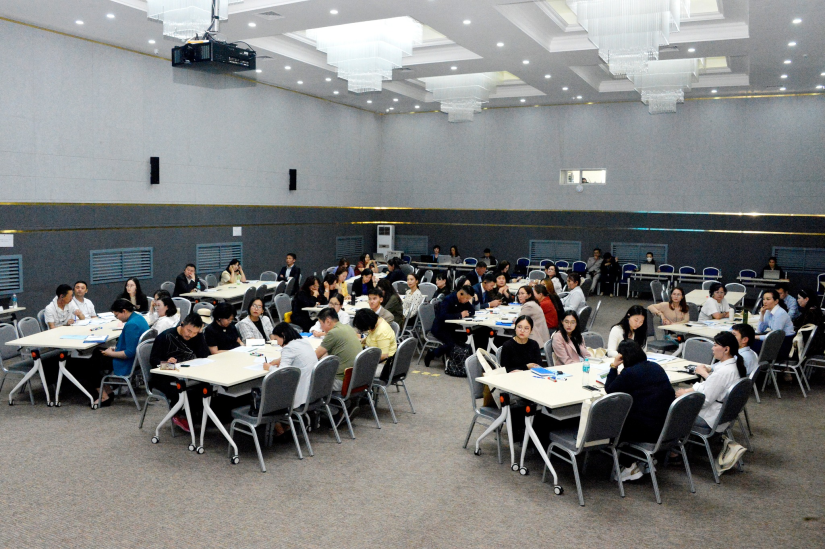
In his closing remarks of the 5-day National Workshop on Effective Governance for Sustainable Development Mr. Kyu Chang Ko, Head of United Nations Project
Office on Governance (UNPOG)/DPIDG/UN DESA underscored “While Mongolia
has made significant progress in advancing the SDGs, challenges still remain.
This workshop has provided an opportunity to deliberate on how to address these
challenges and align national and sub-national priorities with the SDGs. This
is a step in the right direction towards equipping governance institutions for an
accelerated implementation of the 2030 Agenda and Mongolia's Vision 2050.”
“As this workshop comes to a close, I want to reaffirm that UN DESA through its Project Office on Governance remains fully committed to supporting the Government of Mongolia in its efforts to achieve the 2030 Agenda and Mongolia's Vision-2050. We will continue to cooperate closely with our partners, including the UNRC Office, UNDP, and other UN agencies, to strengthen the capacities of governance systems to promote effective, transparent, inclusive, risk-informed, and citizen-centered public administrations. As we proceed, we must all make frantic efforts to continually strengthen national and sub-national capacities to achieve accelerated progress in this decade of action,” noted Mr. Kyu Chang Ko.
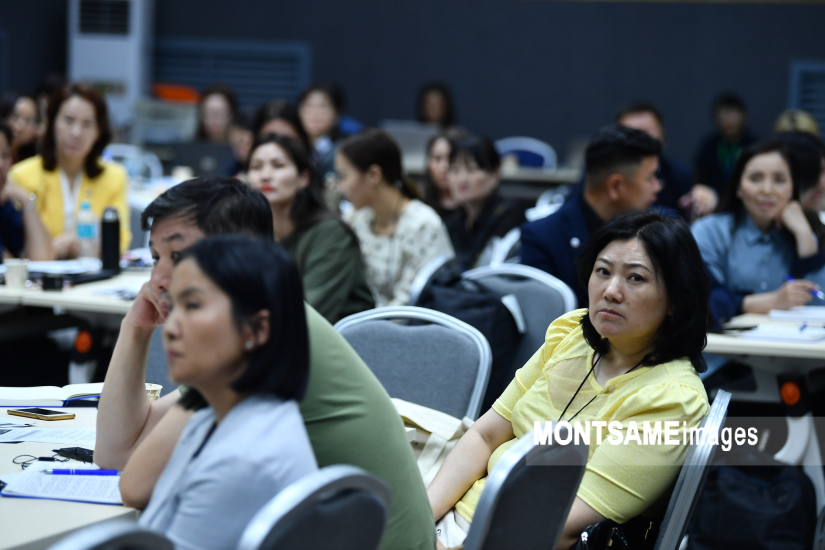
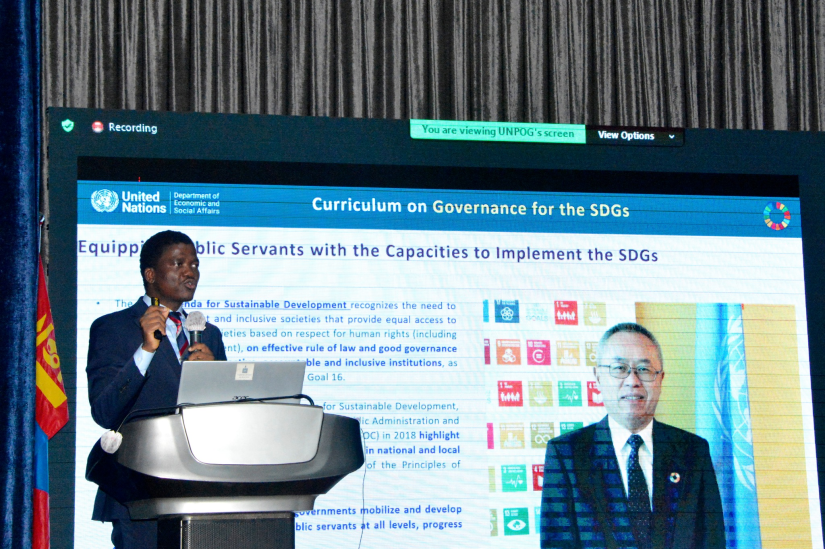
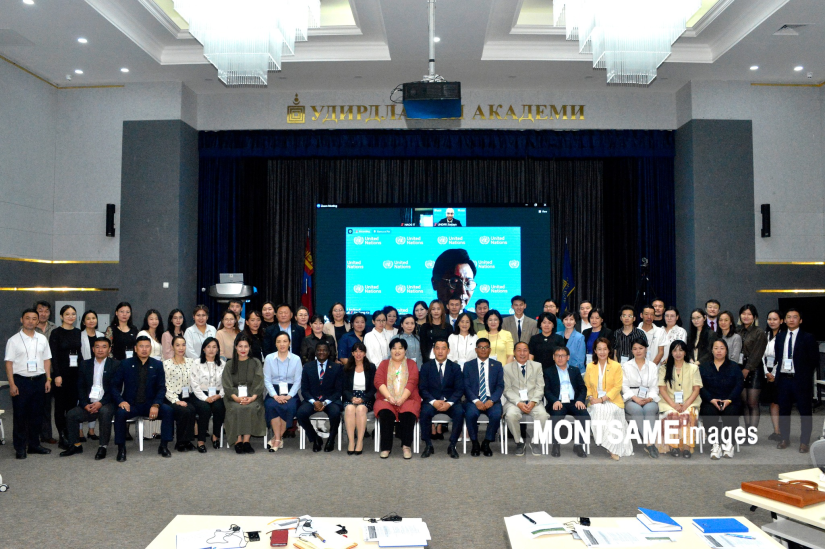
 Ulaanbaatar
Ulaanbaatar











